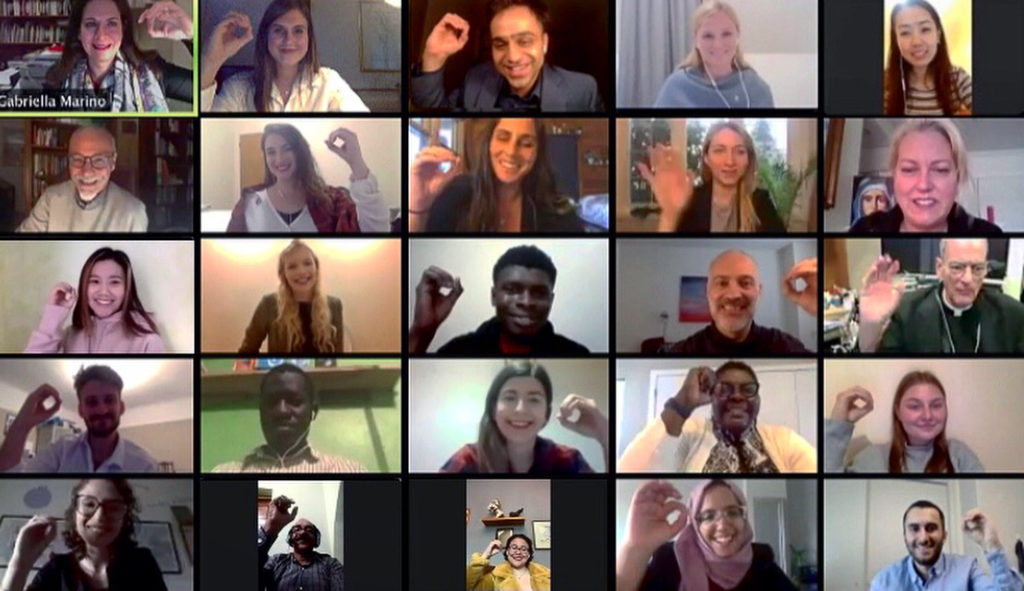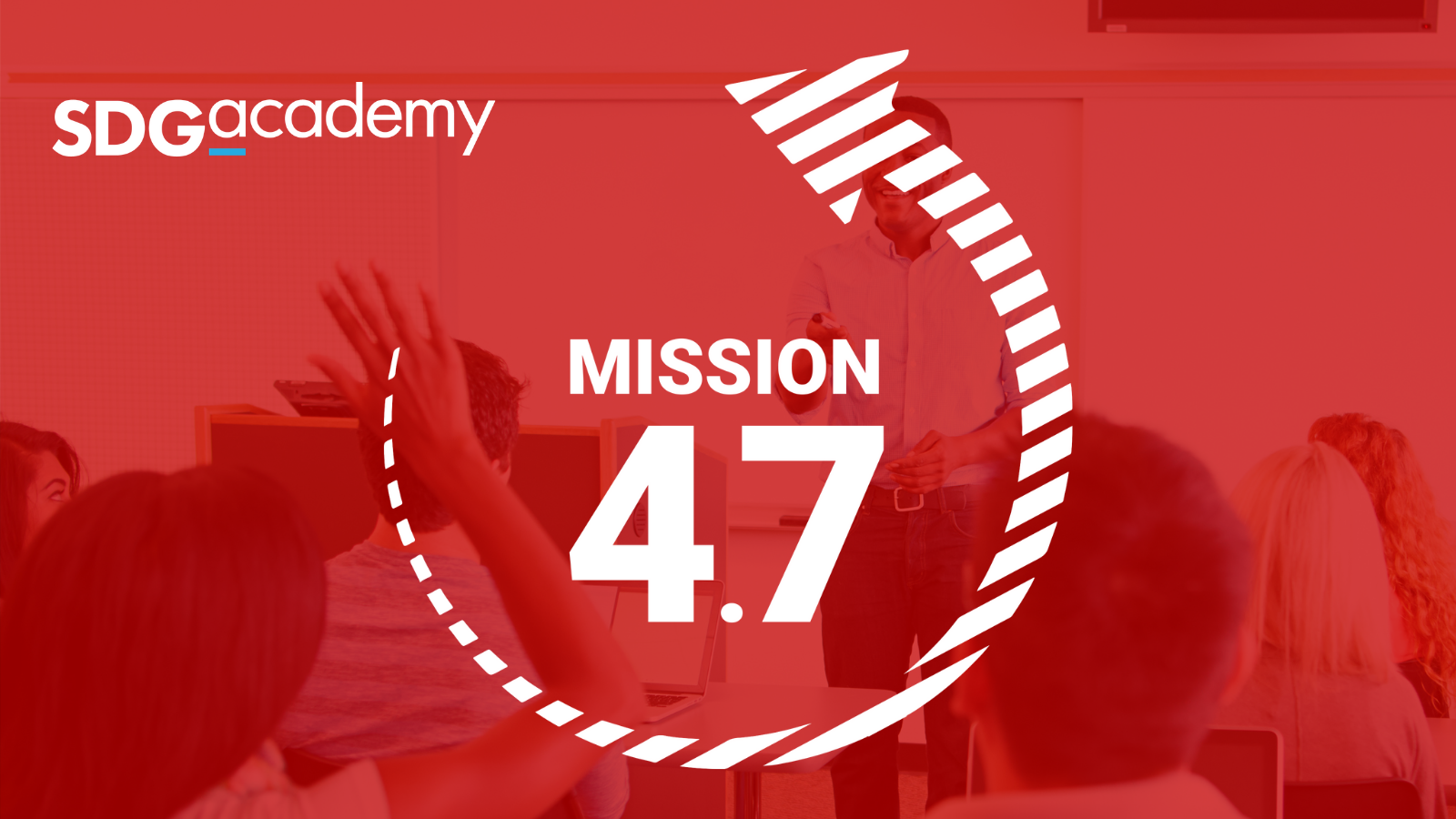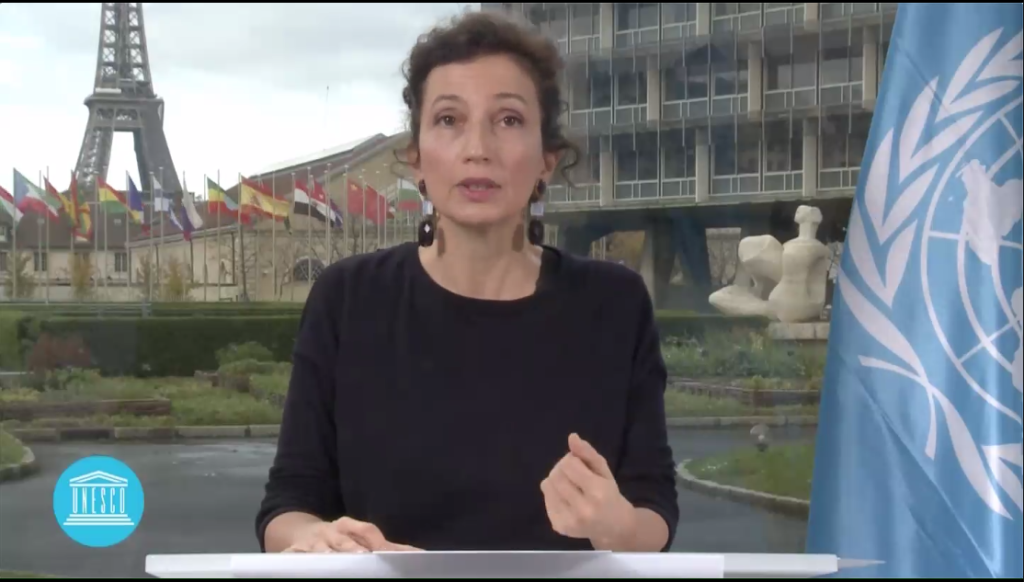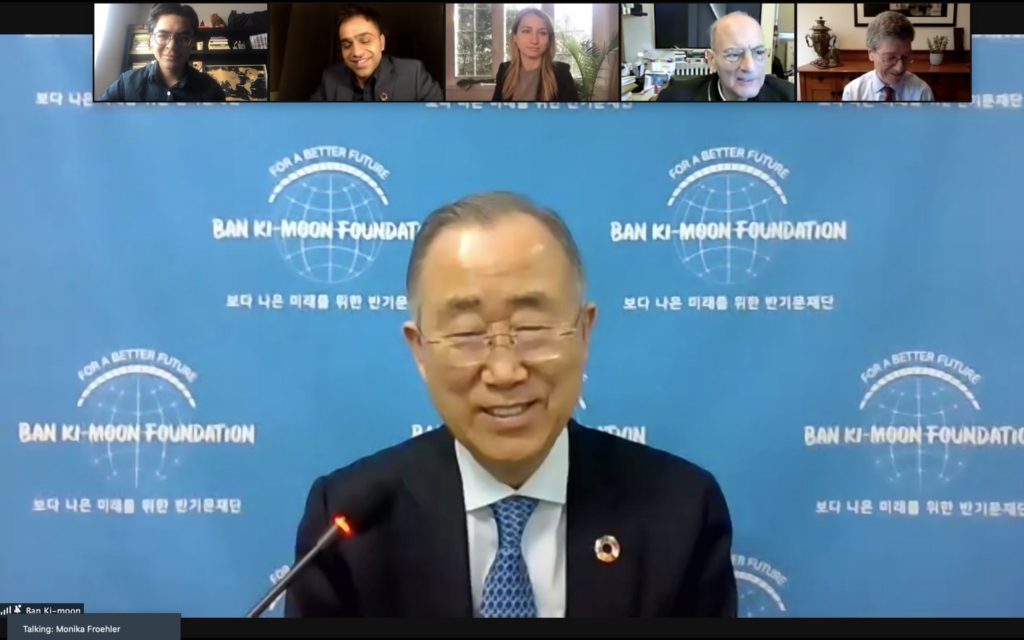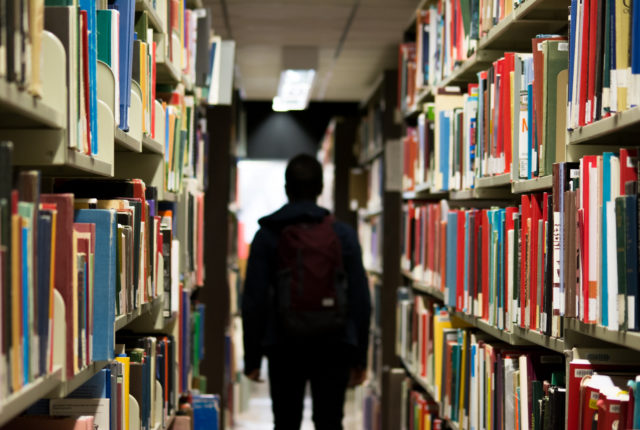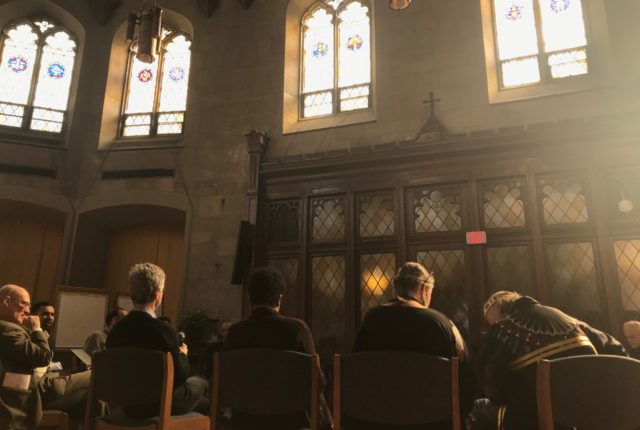On December 16th, 2020, a group of distinguished supporters, including former UN Secretary-General Ban Ki-moon, UNESCO Director-General Audrey Azoulay, and His Holiness Pope Francis, launched Mission 4.7, a new initiative co-founded by Global Schools and the SDG Academy, both flagship programs of the UN Sustainable Development Solutions Network; the Ban Ki-moon Centre for Global Citizens; UNESCO; and the Center for Sustainable Development at Columbia University, to advance SDG Target 4.7 at the highest levels.
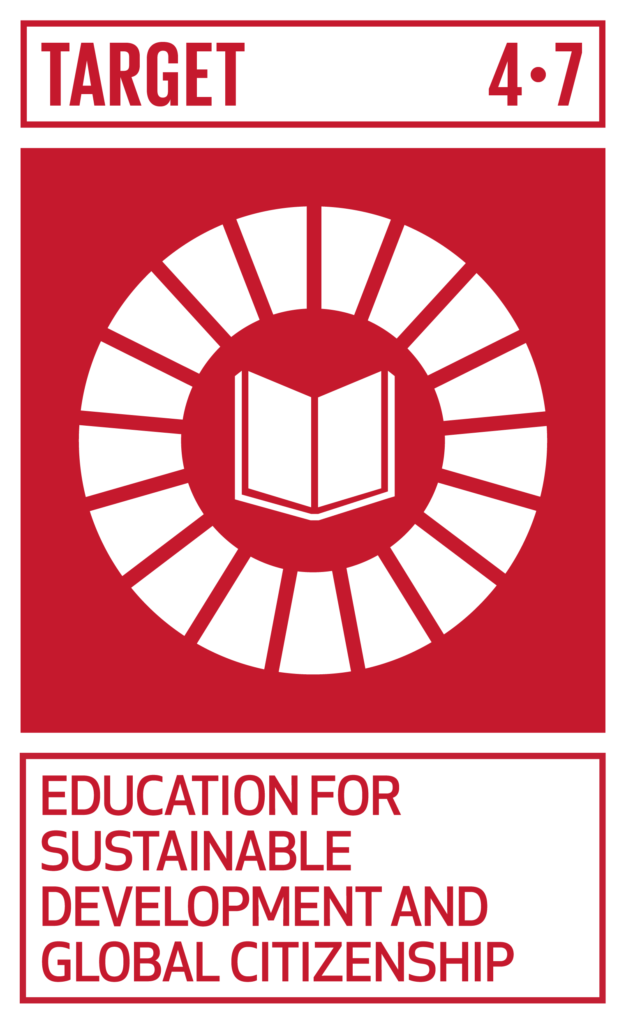
To achieve the SDGs, every individual must acquire the sustainable development knowledge, global citizenship values, and 21st century skills critical to tackling our shared challenges and promoting equitable, inclusive, and resilient societies. Education is a crucial enabler of this transformation. It is the basis for cultivating the best in ourselves and our communities, and is the key for learning to live together and work together for a better world.
Education for Sustainable Development (ESD), Global Citizenship Education (GCED), and 21st century skills provide learners with knowledge to promote social inclusion, find peace and cooperation, and raise awareness of how to protect our societies from emerging diseases, human-induced climate change, loss of biodiversity, and large-scale pollution. In the wisdom of Agenda 2030 and the SDGs, the entire world has endorsed the concept of building a just world through education. The remarkable SDG Target 4.7 shows us a powerful way forward.
Mission 4.7 was launched to put into global practice this bold vision. The seventh annual Vatican Youth Symposium, hosted by SDSN Youth and the Pontifical Academy of Social Sciences, provided the perfect stage for the launch. With its mission to bring together pioneers in global development to catalyze solutions for the Sustainable Development Goals, the event proved that the world has visionary leaders ready to shoulder the challenge of achieving Target 4.7.
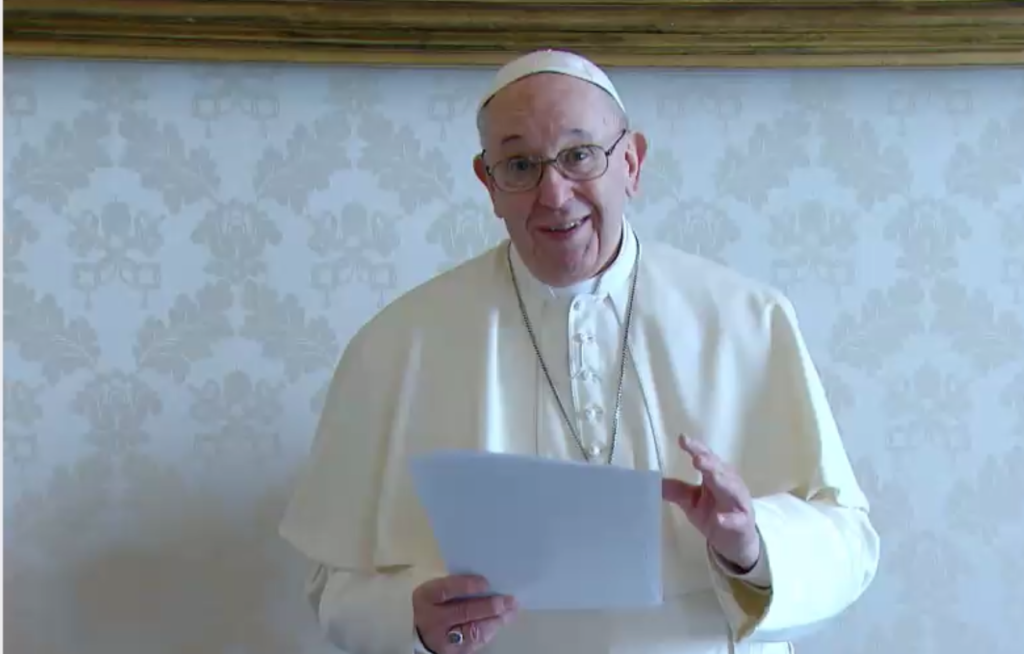
Following a welcome from Monsignor Marcelo Sánchez Sorondo, Chancellor of the Pontifical Academies of Sciences and Social Sciences and host of the symposium, His Holiness Pope Francis delivered a welcome address (en español) urging the audience “to be the poets of a new human beauty, a new beauty of fraternity and friendship, and of protection of the earth we inhabit.” To enact change, he said, we “must start a new wave of educational opportunity based on social justice and reciprocal love.” His words of wisdom set the tone for the rest of the session and reminded the virtually assembled participants why Mission 4.7 is so important.
Mission 4.7 co-chair and moderator of the event’s opening session Prof. Jeffrey Sachs followed, quoting the Pope’s 2015 encyclical Laudato si’: “Here we are today to help move forward on that common plan for our common home.”
Laudato si’ and the 2020 encyclical Fratelli tutti together provide powerful calls “for awareness and leadership in sustainable development and in the global appreciation of culture and global citizenship,” said Prof. Sachs. “And how wonderful that that guidance is so wonderfully compatible with our purpose of launching Mission 4.7.”
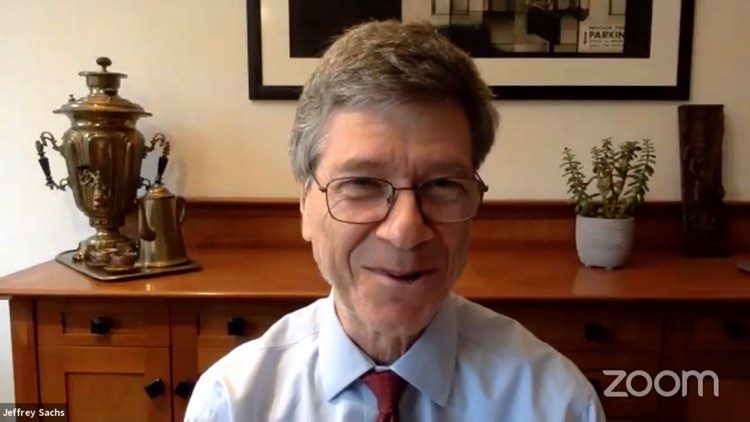
Remarks from Mission 4.7 patrons Audrey Azoulay, Director-General of UNESCO, and former UN Secretary-General Ban Ki-moon followed. Ms. Azoulay addressed the crucial role of education in recovering from the COVID-19 pandemic. The Secretary-General, too, emphasized that, with only ten years left to achieve the SDGs, now is a critical time to accelerate action.
The launch’s first session concluded with remarks from Mission 4.7 co-chairs Monsignor Marcelo Sánchez Sorondo; UNESCO’s Assistant Director-General for Education Stefania Giannini; and Tan Sri Dr. Jeffrey Cheah, Founder and Chairman of the Sunway Group.
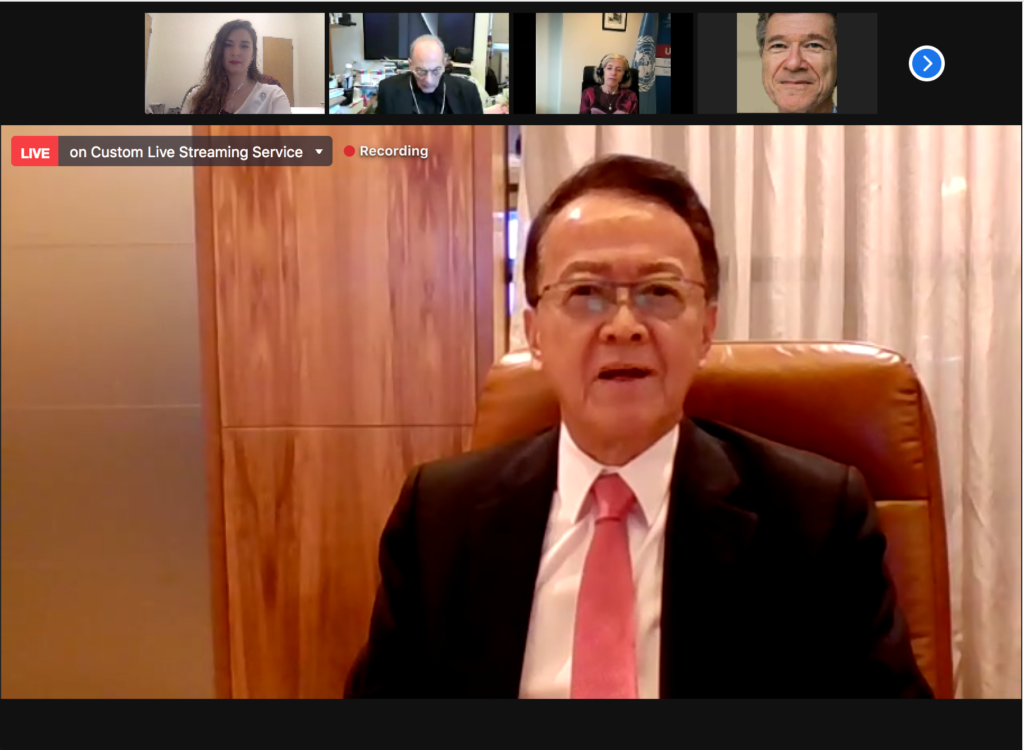
Dr. Cheah perfectly summarized the urgency of the situation in his remarks. “You are all familiar with the challenges we face, and unless we act, and act now, to educate our younger generation, I fear for their future and the world they will inherit,” expressed Dr. Cheah. “To quote an old Chinese saying, ‘If your plan is for one year, plant rice. If your plan is for ten years, plant trees. If your plan is for a hundred years, educate children.'”
The event’s second session discussed the implementation of Education for Sustainable Development in primary and secondary schools. Moderated by Ms. Monika Froehler, CEO of Ban Ki-moon Centre for Global Citizens and Co-founder of Mission 4.7, the session featured further remarks by Ms. Giannini, and a panel discussion with Mr. Sam Loni and Ms. Amanda Abrom, Director and Program Officer, respectively, of SDSN Youth’s Global Schools program; Dr. Andreas Schleicher, Director of Education and Skills at the OECD; Dr. Siva Kumari, Director General of the International Baccalaureate; and Professors Mustafa Öztürk of Turkey’s Hacettepe University and Abdelkrim Marzouk of Morocco’s Al Akhawayn University, both of whom participated in Global Schools’ pilot research project auditing ESD in their respective national curricula.
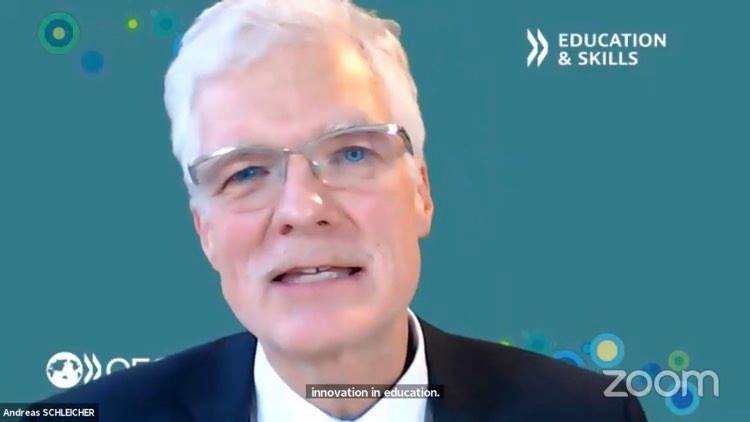
The launch’s concluding session, moderated by SDG Academy Director and Chair of the Mission 4.7 Secretariat Ms. Chandrika Bahadur, introduced the theme of ESD in tertiary and professional settings. “One of the most interesting things about SDG 4 is that it makes reference to lifelong learning for all…Learning does not stop when we step out of our educational institutions,” Ms. Bahadur said in her opening statement.
The session began with remarks from Irina Bokova, former Director-General of UNESCO and member of the Mission 4.7 High-level Advisory Group, who echoed earlier speakers’ praise of the opportunities offered by technology, but cautioned that the digital divide remains a major barrier to equal access to education. She also stressed the need for reform in the tertiary education sector: “The complexity of our world needs a different, inter-sectoral approach at universities. This is where Education for Sustainable Development comes into the picture.”
Ms. Bokova’s remarks were followed by a panel discussion with experts in the field of ESD in higher education. The panelists discussed the current state of ESD and GCED in the sector, presenting examples both of success and remaining challenges.
Mr. José María del Corral (en español), Global Director of Scholas Occurrentes, spoke about his work with Pope Francis creating a new kind of school that promotes a “Culture of Encounter,” which now reaches more than one million students all over the world.
Harvard Professor Fernando M. Reimers proposed new models for mobilizing sustainable development education, and warned that the work of ESD should not be about the 17 Goals themselves, but understanding the challenges underlying sustainable development and identifying the knowledge, values, and skills needed to solve these problems.
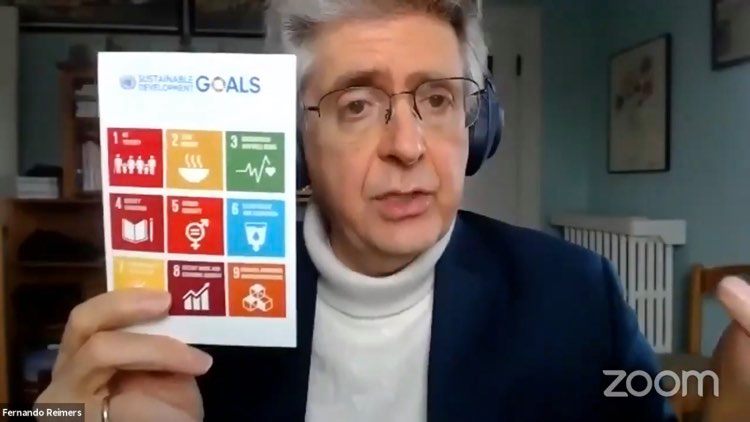
Ms. Theresa Yung, Project Lead of the SDG Student Program, stressed that “the SDGs are not something that need to be taught. They are something that need to be enabled as a way of doing…[Students] need to stop being passive consumers of content, and start creating interesting projects out in the communities.”
Prof. Akpezi Ogbuigwe, Director of Nigeria’s Rivers State University of Science and Technology Advancement/Linkages Centre, spoke next, emphasizing the parallel needs of content integration and teacher capacity building in the area of ESD.
Finally, Ms. Noha Al-Khalqi used examples from her work as Programs Director at Millennium Campus Network to highlight the importance of experiential learning to promote social impact among university students.
Ms. Bahadur ended the panel discussion with final thoughts and reflections, namely the need to create an environment where university students do much more than just learn about the SDGs; they actually design and implement solutions for sustainable development.
The session concluded with remarks from Professor Stefano Zamagni, President of the Pontifical Academy of Social Sciences.
Throughout the launch event, speakers emphasized the incredible power of young people to develop solutions for the sustainable development challenges, and the need to mobilize education to deliver the knowledge, skills, and values that will drive action on the SDGs. Visit Mission4point7.org to learn more.
